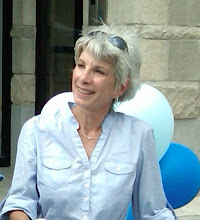 "What you need is an old fashioned carpet sweeper," my husband told me as he cleared the dishes one evening.
"What you need is an old fashioned carpet sweeper," my husband told me as he cleared the dishes one evening. We'd recently purchased a new dining room rug, a brown plaid that complements our mission furniture. We'd never considered that the crumbs that faded into the background of our old Oriental would stand out in high relief on the new dark background.
I vacuumed a few times, but it really was a pain in the back to haul that appliance up and down the stairs. I also tried sweeping, but that didn't work very well. So I'd been trying to ignore the crumbs when my husband made his suggestion.
"Do they even make carpet sweepers anymore?" I thought to myself. "And where in the world do you buy them?"
"Do they even make carpet sweepers anymore?" I thought to myself. "And where in the world do you buy them?"

























